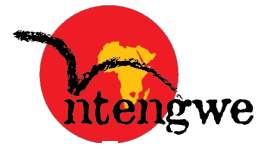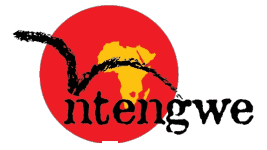Theory of Change
Given that Ntengwe as an organization facilitates change, our strategies are based on a very sound Theory of Change.
Our Programs and Influencing
The Ntengwe Theory of Change lays out a pathway to transformative social change.
We seek to enhance support of social movements by creating practical tools and guidance towards community self-determination, community resilience, and community solidarity to achieve long-term, transformational change.
Focusing efforts on these three areas will lead to Ntengwe’s vision of today’s resilient communities for a better tomorrow, free from poverty, injustice, and discrimination.
During participatory evaluation processes with our stakeholders, including the communities, we have collectively made a number of strategic choices to clarify our role and priorities to integrate the three areas in our work as outlined in our mission and vision. These are:
 Community self-determination: Community-led programs operate on the principles of transparency, participation, accountability, and enhanced local capacity. Poor communities effectively get together to identify community priorities and address local problems by working in partnership with local governments and other institutions to develop appropriate intervention strategies to reduce poverty and deliver basic services.
Community self-determination: Community-led programs operate on the principles of transparency, participation, accountability, and enhanced local capacity. Poor communities effectively get together to identify community priorities and address local problems by working in partnership with local governments and other institutions to develop appropriate intervention strategies to reduce poverty and deliver basic services. - Community-resilience: Communities, particularly those that have grassroots women leaders, have a voice, and develop processes to support these communities. They identify key factors negatively impacting on their lives and utilize strategies to help communities to understand how to try and prevent disaster risks; strengthen disaster risk management; invest in reduction of disaster risk consequences, and enhance disaster preparedness for effective response and recovery.
- Community solidarity: Empowered communities use participatory action and responses to increase self-esteem, social cohesion, and interaction at the family and community levels. Communities, especially grassroots women groups, engage in building local, national, and regional networks and platforms for knowledge and experience-sharing.
Dimensions of Change
By achieving lasting improvements in the lives of our communities based on the environment in which they live, enables them to realize their rights. We can best contribute to more enabling environments by triggering change in four interconnected dimensions:
- by strengthening grassroots networks and community self-determination
- by promoting gender equality, social and climate justice for resilient development
- by building partnerships, alliances, and networks
- by contributing to better policies, legislation, and government services at various levels that affect every citizen’s life.
Working at all Levels
We are working at and across all levels – locally, nationally, and regionally, to connect, collaborate, and link communities to resources.
We envision that the Theory of Change will provide us with a strong anchor for evidence building to facilitate data-driven planning, build the capacity of stakeholders to elevate the voice of the community, and encourage institutions to change policies to changing physical environments.
The Theory of Change reflects all the changes at various levels that need to occur to lead to the sustained well-being in communities where Ntengwe is present.
The Theory of Change provides the basis for a number of aspects of our work. It focuses on the root causes of poverty, injustice, and discrimination. It provides a holistic perspective on how elements of our programming integrate to support a broader change process.
It helps us to see how we need to integrate our advocacy and programming work, and it further provides an anchor for evidence building and learning in our programs, outlining a pyramid of outcomes.


